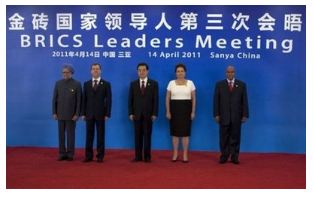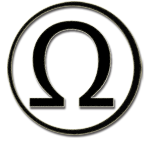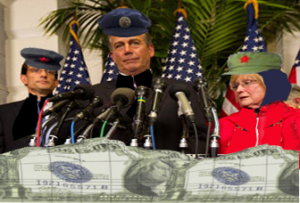 BRICS is a grouping of the emerging economic powers. Most of the news has centered on their effort to create a new world currency, what I call the Omega!
BRICS is a grouping of the emerging economic powers. Most of the news has centered on their effort to create a new world currency, what I call the Omega!
Perhaps more interesting, is the odd the mix of ethnic background and political leanings of the leaders of this new Rome:
- A Sikh Indian leader of a democracy, India
- A Caucasian, Russian leader of a plutocracy, Russia
- A Han, Chinese leader of a Corporate State (aka Fascism), China
- A Caucasian and perhaps African leader of a democracy, Brazil
- A Bantu, African leader of a democracy, South Africa
In aggregate, this unlikely platoon represents something quite new in the world .. a  group with almost no common cultural heritage, that has the resources to comprise a world government. If anything it reminds me of the Roman Empire just before Constantine sanctified it by beginning the theocracy that led to what we now call “Europe.”
group with almost no common cultural heritage, that has the resources to comprise a world government. If anything it reminds me of the Roman Empire just before Constantine sanctified it by beginning the theocracy that led to what we now call “Europe.”
The odd thing is that Europe is not part of this new Rome. These is no member that belongs to the European cultural community. While Russia might be an exception, the Czars never claimed an allegiance to the Bishop of Rome or to any Pontifex maximus. Racially too, Russian identity with Europe has never been as close as those of , for example, America, Australia, or Canada. Besides, Russians often have squinty eyes. Have you ever looked at a portrait of Lenin? Makes you think they are really not like us. Of course the rest of “Russians” are really Jews! Look at the slant of his eyes, and he had a Jewish grandfather! (BTW, it now appears that Ghadafi is Jewish too! See yesterday’s post). 
Actually, looking at the membership of BRICA again, it is at least interesting that there are no Jewish countries represented. Oh well .. Israel is too small to be considered. On the other hand, is it odd that BRICA also excludes and Muslim countries? Where are Malaysia, Indonesia and Singapore? Am I missing something? Maybe someone needs to tell BRICA that Poland and Ukraine are now judenfrei? (PLEASE: if you do not appreciate sarcasm, ignore my comments here about eyes and Jews.)
The analogy to American newspeak seems to me to be clear. The left here has successfully introduced the term “people of color” (POC)into our discourse. POC, however has nothing to do with skin color. For example, a dark skinned Greek would be excluded while a blond descendent of Germans from Mexico would be included. As a Sephardic Jew (1/2), I am excluded while a colleague with 1/8 Cherokee ancestry is included.
Here in Seattle, the POC idea as gone so far as to be moving to break our congressional district in two because the State has never had a POC congressman. Somehow, this effort considers the Vietnamese, Ethiopians, Salvadoreans, Somali, Sephardic Jewish, White working class, and African-American populations south of the Seahawks Stadium to be a single ethnic group.Seems to me that what unites these folks is their economic class, not their identification with each other by language or skin color. If you need to figure out what the ethnic group of PONC might look at, I suggest you look at this picture of Republicans working to undermine the dollar.
Despite my doubt about the term POC, I think BRICS is VERY important. It is not difficult to see a broader alliance, perhaps even including Germany and Canada, given those countries’ politics and world clout, emerging as an aggregate world power to rival or replace the USA-European axis that has ruled the world now for about 200 years. 
A good first step might well be establishing a new unit of world currency as a succesor to the history of nation-bound talents, pounds, and dollars. As a service to BRICA, I have even devised a symbol, the last letter of the Greek alphabet .. Omega, seem perfect for this job.
from Yahoo News By Abhijit Neogy and Alexei Anishchuk SANYA, China (Reuters) – The BRICS group of emerging-market powers kept up the pressure on Thursday for a revamped global monetary system that relies less on the dollar and for a louder voice in international financial institutions. The leaders of Brazil, Russia, India, China and South Africa also called for stronger regulation of commodity derivatives to dampen excessive volatility in food and energy prices, which they said posed new risks for the recovery of the world economy. Meeting on the southern Chinese island of Hainan, they said the recent financial crisis had exposed the inadequacies of the current monetary order, which has the dollar as its linchpin. What was needed, they said in a statement, was “a broad-based international reserve currency system providing stability and certainty” — thinly veiled criticism of what the BRICS see as Washington’s neglect of its global monetary responsibilities. Read More
